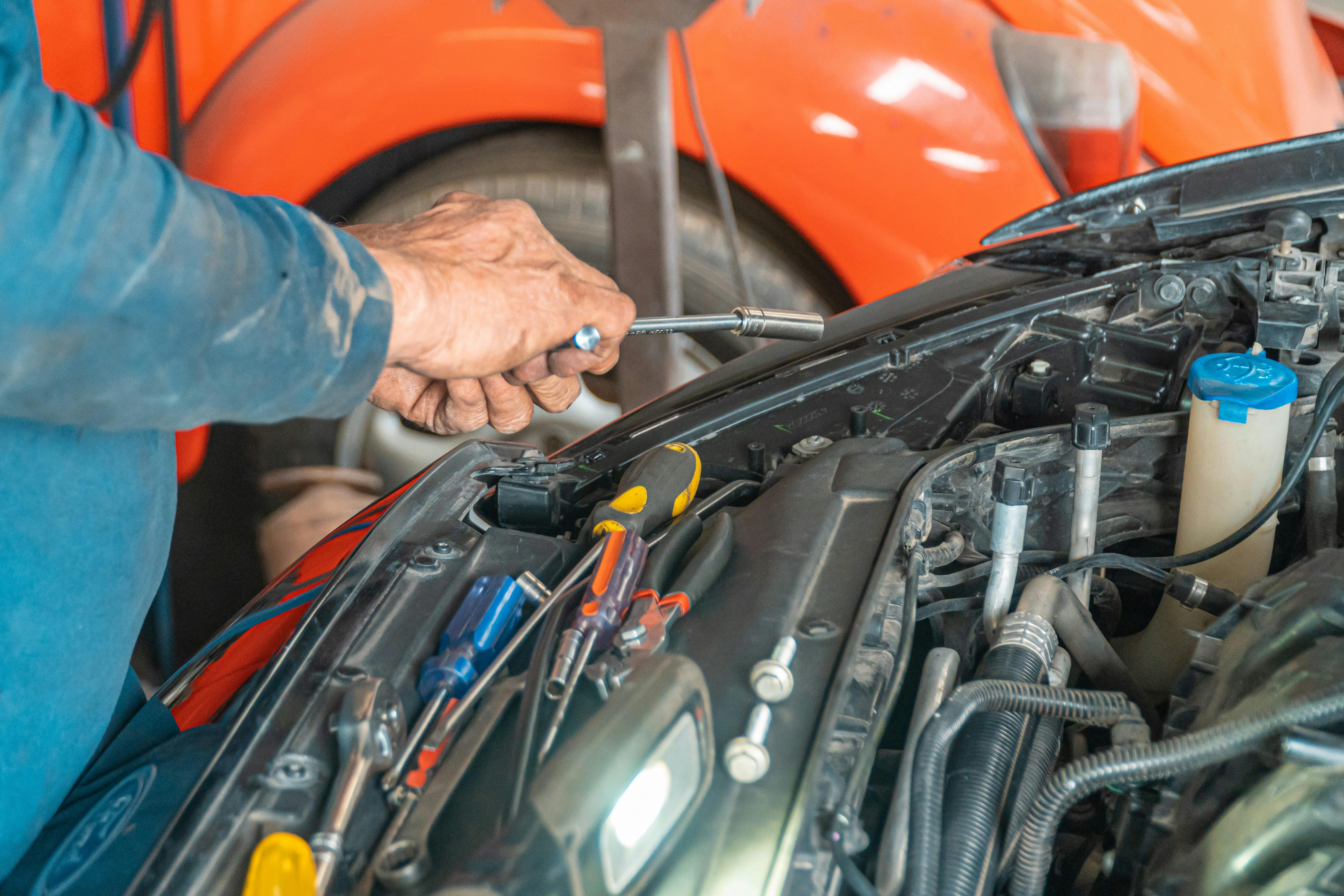
Maintaining our vehicles can often feel overwhelming, especially with the intricate workings of cars, which is why understanding some insider tricks can help you navigate potential pitfalls and empower you to extend your car’s lifespan effectively.

1. **Beware of Scare Tactics**: It’s not uncommon for mechanics to use scare tactics to convince you that your car requires extensive repairs. This can be incredibly stressful, especially if you don’t have much automotive knowledge. Remember, while some repairs are necessary, if a mechanic is trying to scare you into immediate service, take a step back. Always get a second opinion!

2. **Watch for ‘Gravy Work’**: Some mechanics have a habit of billing for more hours than they actually worked. This practice, often referred to as ‘gravy work,’ can result in you being charged for a job that took significantly less time. Keep an eye out for inflated labor charges and don’t hesitate to ask how long a repair should take based on industry standards.

3. **Avoid Friday Services**: Whenever possible, try not to schedule your car’s service on a Friday; mechanics may rush to finish before the weekend, which could lead to oversights. Instead, a Monday appointment ensures they are refreshed and focused, giving your vehicle the attention it deserves.

4. **Utilize Labor Guides**: Familiarizing yourself with labor guides that outline standard repair times can be a game-changer in saving money, providing you with a helpful benchmark to refer to when discussing costs with your mechanic and keeping you informed about expected timelines.

5. **Question Fluid Flushes**: It’s wise to be cautious about frequent fluid flush recommendations, as many modern fluids are designed to last up to 100,000 miles, indicating that some mechanics may push these services unnecessarily. Always consult your vehicle’s owner manual for the true maintenance schedule to avoid unwarranted expenses.

6. **Shop Around for Parts**: Car parts can be quite pricey, but many mechanics make a profit from the parts they sell. If you find cheaper parts elsewhere, ensure they’re from a reputable supplier, and don’t be afraid to ask your garage to install them for you. This simple act can save you a significant amount of money without sacrificing quality.

7. **Verify Qualifications**: Not all mechanics are created equal. It’s essential to verify that your mechanic has the right qualifications, such as the National Institute for Automotive Service Excellence Certification. A qualified mechanic is more likely to perform the job correctly and efficiently, saving you from unexpected issues down the line.

8. **Recognize Unnecessary Repairs**: Studies have shown that a significant percentage of car repairs are unnecessary. Mechanics might suggest replacing parts that could be repaired instead. Always consult your vehicle’s manual and do some research before agreeing to repairs that seem excessive.

9. **Be Wary of Markups on Parts**: Mechanics can mark up parts by an average of 40%. To avoid being overcharged, ask for the part number and price before authorizing repairs. Compare these prices with online retailers or local auto parts stores. Gaining this knowledge can empower you to make better financial decisions when it comes to repairs.

10. **Preventive Maintenance is Key**: One of the most powerful tricks is understanding the importance of preventive maintenance. Regularly scheduled services, like oil changes and fluid checks, can help catch small issues before they become big problems. Not only does this prolong the life of your vehicle, but it also saves you money in the long run. Make a calendar to keep track of these services based on your owner’s manual to ensure you stay on top of your vehicle’s health.

11. **Learn to DIY**: You don’t need to be a professional mechanic to handle basic maintenance; mastering tasks like changing oil, replacing air filters, and rotating tires can save you a lot of money. With a wealth of online tutorials available, you can easily empower yourself with essential skills and gain a deeper appreciation for your vehicle.

12. **Keep Tire Pressure in Check**: Your tires are your car’s only point of contact with the road, making their upkeep vital for safety and performance. Regularly checking and maintaining proper tire pressure can lead to better gas mileage, improved handling, and prolonged tire life—an easy habit that pays off in savings.
13. **Utilize the Power of Technology**: Nowadays, there are numerous apps and tools that can help you keep track of your vehicle’s maintenance. From reminders for oil changes to notifications when your registration is due, these digital solutions can ensure you never miss a crucial service. Invest in a good vehicle maintenance app to streamline your car care process.

14. **Understand Your Warranty**: Familiarize yourself with your car’s warranty terms. Knowing what’s covered can save you a lot of stress and financial strain when something goes wrong. If repairs fall under warranty, you might avoid hefty costs that would otherwise come as a surprise. Always keep a copy of your warranty easily accessible for reference.

15. **Don’t Ignore Warning Lights**: Your dashboard provides essential information, and ignoring warning lights can lead to serious, costly issues later. Take a moment to familiarize yourself with what each light signifies in your owner’s manual and address any concerns quickly to avoid complications down the line.

16. **Find Your Car’s Sweet Spot**: Every vehicle has its ideal operating conditions; for example, gently driving for the first few miles after starting can help ensure your engine runs smoothly and efficiently. Understanding your car’s specific needs and treating it accordingly will keep it performing at its best.
17. **Use Quality Fuel**: While it might be tempting to go for the cheapest gas available, using higher-quality fuel can lead to better performance and longevity for your car. It can help maintain a cleaner engine and improve overall efficiency. Always check your owner’s manual for fuel recommendations specific to your make and model.

18. **Join a Community**: Lastly, consider becoming a member of a community or online forum specific to your car make and model, where you can share experiences and gain insights from fellow enthusiasts. These connections can provide valuable advice, troubleshooting tips, and recommendations for trustworthy mechanics.

By incorporating these savvy strategies into your regular car maintenance routine, you can significantly prolong your vehicle’s lifespan while also saving money in the process. Knowledge is your best tool for achieving car immortality and avoiding unnecessary repair costs. Take charge of your car’s upkeep, and you’ll enhance both your driving experience and your wallet for the long haul!
Related posts:
27 Things That Mechanics Don’t Want You To Know
Top 10 Things Your Mechanic Doesn’t Want You to Know (But You Need To!)






